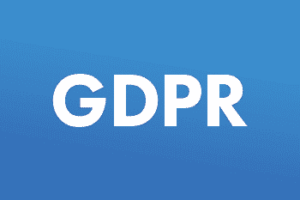Clinical trials are a costly but very necessary process as modern medicine sees new drug advancements. Pharmaceutical industry drug trials are also a wonderful example of a game-changing application for predictive modeling in healthcare.
When combined with a powerful Predictive Analytics (PA) engine and Machine Learning capabilities, predictive modeling technology can empower pharmaceutical companies to bring better treatments to market in less time. This technology quite literally holds the power to transform and even save lives.
Consider this: for a new drug, it can take anywhere from 10 to 15 years to complete the three standard clinical trial phases before the medication can even be considered for successful licensing. According to the U.S. Food and Drug Administration (FDA), only 1 in 10 drugs will be approved, yet millions of dollars are spent on pharmaceutical research and trials. Reducing this timeframe—while simultaneously improving clinical trial outcomes—will make the “bench-to-bedside” process faster and more cost-effective. The end result: new, life-saving drugs will be available sooner and at a more affordable cost.
Leveraging Healthcare Predictive Modeling for Pharmaceutical Development
Years before the start of drug trials, pharmaceutical companies must sink millions of dollars into research and development. In some instances, the R&D process can literally suck up billions of dollars over a span of decades as the drugmaker attempts to determine the ideal formulation, dosage and delivery mechanism.
Predictive modeling algorithms can be created to account for the many variables that impact a drug’s efficacy and impacts. In fact, the medical applications of predictive modeling technology are virtually infinite, from simulating different conditions within the human body or different phases in a disease process, to running models as part of research into a drug’s formulation, potential interactions and side effects.
Using Predictive Modeling During the Drug Trials Enrollment Process
More and more companies are turning to Big Data, Predictive Analytics and predictive modeling technology to improve decision-making during the feasibility assessment process. This starts with designing an effective enrollment process for the clinical trials. Previously, it was a time-consuming process, dependent upon discussions with a focus group or survey questionnaires that were sent out to doctors in an attempt to determine how many patients may be eligible to enroll in the trial.
Today, the drug trial enrollment process is more fact-based with access to de-identified data sets. This data-driven approach provides a more accurate picture of the possible patient base for a particular drug or treatment. With this data, companies can identify groups that may be eligible for clinical trials in a particular geographic location. Such insight goes a long way in drastically cutting down on enrollment time. However, increased efficiency is not the only benefit. An accurate enrollment forecast will also lead to a more effective budget plan.
Predictive Modeling in Healthcare: Anticipating Patterns and Behaviors
Human behaviors can play a significant role in clinical trials. Some trials may be very straightforward, while others can require patients to perform a more complex series of actions. Is the average patient going to perform these actions properly? This is a critical question; the answer will have a dramatic impact on a drug’s efficacy and ultimately, its FDA approval (or lack thereof).
This is just one example of an obstacle that can be solved through the use of predictive modeling in the healthcare field. Predictive Analytics can be used to process vast data sets, with Big Data and accompanying modeling software generating useful projections. These data-based predictions can be used to streamline a drug treatment protocol or to make other changes that will maximize the chances of a prompt approval from the FDA.
Other High-Tech Advances in Today’s Clinical Trials
Virtual clinical trials are now tapping into patient smartphones through mobile apps and wearable devices. This allows the input of behavioral data sets in real-time and removes the restrictions of geographical location. Drug manufacturers can leverage data from wearables and smartphone devices to gain some vital insights during their clinical trials. The end result: a well-crafted drug that’s more likely to receive FDA approval in a prompt and expedient manner.
Big Data is also allowing for more complex trials by permitting iterative changes in parameters based on real-time outcomes. This is only the tip of the iceberg, with these technologies improving virtually every aspect of clinical trials process, from enrollment and planning, to data collection, data management and comprehensive data analysis.
At 7T, our goal is to solve problems with emerging technologies such as Predictive Analytics (PA), Machine Learning and Augmented Reality (AR). Whether you’re in the healthcare field or an entirely different industry, there’s a good chance that data governance tools will provide a competitive edge. Our powerful data lake creation tool, Sertics, enables the power of Predictive Analytics and Data Visualization.
Our experience speaks volumes, as we’ve worked with clients in the medical and healthcare sector, the insurance industry and manufacturing, among others. We integrate a variety of technologies into custom software platforms, including Enterprise Resource Planning (ERP) platforms, Customer Relationship Management (CRM) software, SaaS solutions and mobile apps.
7T is based in Dallas, Texas. We maintain regional offices in Houston and Chicago, though our team works with clients worldwide. If you’re ready to learn more about how you can make the most of a bespoke Predictive Analytics software platform or custom mobile app, reach out to the team at 7T today.









